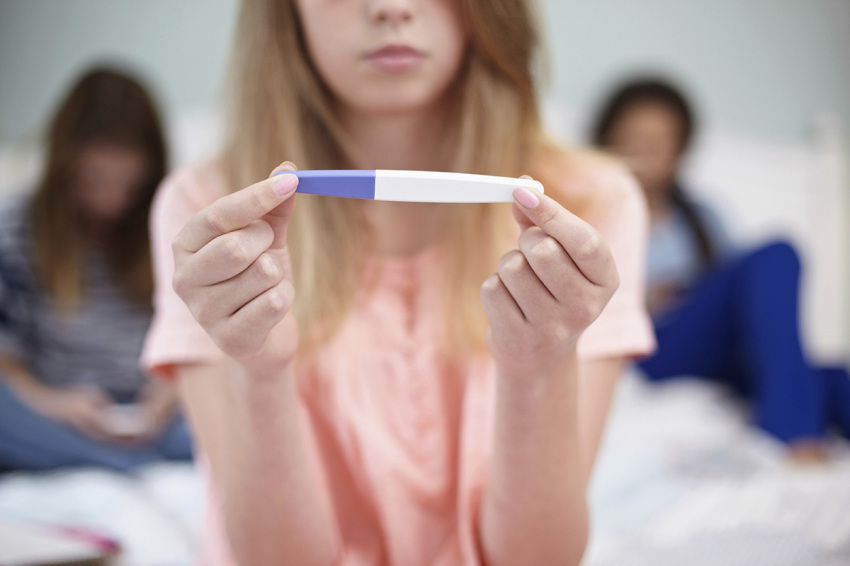Drop in teen pregnancy linked to fewer teens having sex, not contraceptive use: analysis

The number of sexually active teenagers has continued to decline, according to a recent analysis of data released by the Centers for Disease Control, which said this, and not contraceptive use, is behind the drop in the country’s teen pregnancy rate.
The CDC released its National Health Statistics Report on Dec. 14, which documents national estimates of teen sexual activity and contraceptive use among teenagers ages 15 to 19. The National Survey of Family Growth gathered data through a sample of males and females ages 15 to 49.
NSFG conducted in-person interviews with 21,441 males and females, including 3,812 teenagers, between September 2015 and September 2019. The interview subjects consisted of 1,894 females and 1,918 males ages 15 to 19.
According to the report, in 2015-2019, 40.5% of never-married female teenagers and 38.7 of never-married male teenagers had ever experienced vaginal intercourse with a partner of the opposite sex. While the percentage for females remained stable, it decreased for males from 2002 and 2011 through 2015.
In an analysis of the report published by the National Review, Michael New, senior associate scholar at the pro-life Charlotte Lozier Institute, said that the study contains “good news” for social conservatives.
“Specifically, between 2002 and the period 2015–2019, the percentage of teen boys (15–19) who ever had sexual intercourse fell from 45.7 percent to 38.7 percent. During the same period, the percentage of teen girls (15–19) who ever had sexual intercourse fell from 45.5 percent to 40.5 percent,” New wrote.
The pro-life researcher further noted that the percentage of teenage girls who have ever had sexual intercourse has decreased by 10 percentage points since 1988, and the percentage of teenage boys who have engaged in sexual intercourse fell by 21% since 1988.
New cited a March 2021 report from the Guttmacher Institute, a pro-choice research organization, which found that teen pregnancy rates in the United States have fallen by 73% since 1993. The researcher acknowledged a common talking point that the decline in teen pregnancy rates is due to contraceptive use.
While he acknowledged that sexually active teenagers might be more likely to use contraception, New argued that the decline in teen sexual activity deserves more credit for this trend. The pro-life researcher noted that teaching abstinence in sexual education programs targeted at teens is controversial, as some view teenagers having sex as inevitable.
“However, these data clearly show that substantial declines in teen sexual activity are possible. Given that, social conservatives would do well to stay the course,” New wrote.
In 2021, the CDC released its Youth Risk Behavior Survey, which also noted a decline in teen sexual activity. The survey found that the percentage of high school students who said they had ever had sex fell from 47% in 2011 to 30% in 2021.
During the same time period, the number of teens who reported that they had four or more sexual partners went from 15% in 2011 to 6% in 2021. In addition, only 21% of teens said they were sexually active in 2021, compared to 34% in 2011.
New addressed the YRBS findings in his February breakdown of the study for the National Review, and the pro-life researcher again highlighted what appeared to be evidence of a long-term decline in teen sexual activity.
“Of course, It is possible that the COVID-19 pandemic played a role in this decline. However, YRBS data indicate that there has been a long-term decline in teen sexual activity,” New wrote.
“Overall, since 2010, the percentage of high-school students who ever had sex has fallen by 17 percentage points,” he continued. “This includes a 20-point decline among high-school boys and a 15-point decline among high-school girls. Other YRBS survey questions also indicate that there have been long-term declines in teen sexual activity.”
Samantha Kamman is a reporter for The Christian Post. She can be reached at: samantha.kamman@christianpost.com. Follow her on Twitter: @Samantha_Kamman



























